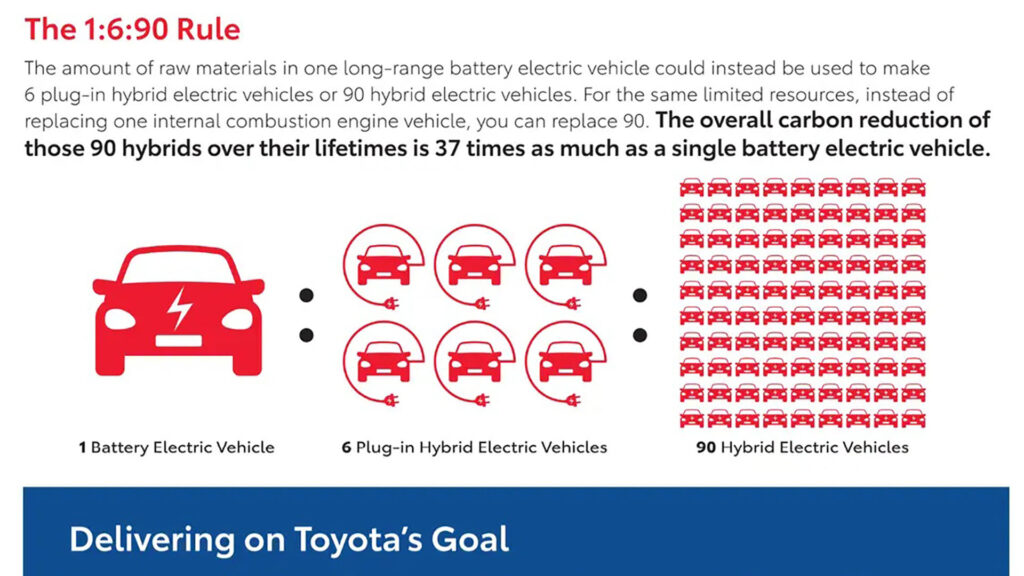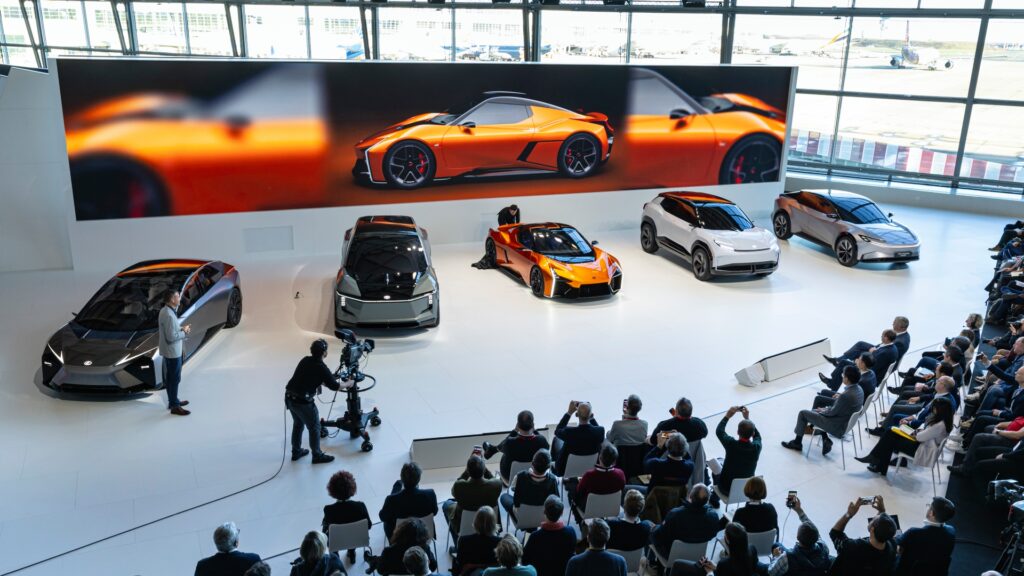What if Toyota had missed the boat on the electric car because of unjustified apprehension about the quantity of lithium? This is an explanation which could indeed allow us to better understand certain speeches from the Japanese manufacturer.
Despite a recent surge in favor of electric cars, Toyota still seems particularly reluctant to mobilize on this technology. An outdated view on the scarcity of lithium could explain the origin of this position of the company for years. This is what underlines an analysis by the media Automobilwoche on March 25.
Toyota has been the precursor of the hybrid since the end of the 90s. It was therefore possible to imagine that the manufacturer, which helped to electrify the world’s automobile fleet, would be one of the first to support electric vehicles, which appear to be the next step. It’s ultimately quite the opposite.
Did Toyota underestimate the availability of lithium?
If we assume that the company may have feared a rapid shortage of lithium, Toyota’s reservation on the electric car makes perfect sense. A position that the general director of the Toyota Research Institute, Gill Pratt, confirmed during the Davos economic forum in 2023: “ There won’t be enough lithium “. A comment that he has mentioned several times in recent years.
Based on this postulate, Toyota’s strategy has always been to say: it is better to equip 90 hybrid vehicles with a battery than a single electric vehicle with a large battery. This is Toyota’s 1:6:90 rule that Numerama presented in a previous 2023 article.

Except that the speech, which Toyota continues to hammer home, has since been contradicted by experts. There is no risk of lithium shortage. There are abundant global reserves of this mineral and technological advances make it possible to exploit lithium resources more efficiently and at lower cost. According to Automobilwoche, the total proven reserves should even amount to 62 million tonnes, which would represent around 10 billion 100% electric cars.
Toyota’s hypothesis is ‘completely absurd’
Some experts even judge the conclusions of Toyota and Gill Pratt quite harshly. “ This is completely absurd » concluded Auke Hoekstra, director of the chair of sustainable energy and mobility management at the University of Eindhoven. For Maximilian Fichtner, director of the Ulm battery research center: “ Toyota’s argument lacks evidence. And from a reliable perspective. »


It must be said that focusing solely on lithium is certainly no longer as relevant as in the past. The development of non-lithium batteries, such as sodium batteries, offers potential long-term alternatives. Even if these new batteries do not yet offer sufficient efficiency to be developed on a large scale, they are relevant alternatives. Progress in battery technology is happening extremely quickly, but it is true that this knowledge is mainly held by the Chinese battery giants. Which can pose an ideological problem for certain manufacturers like Toyota.
We should also not put aside the progress made by the battery recycling sector. The circular economy is expected to alleviate concerns about lithium resources and other battery-related raw materials in the future.
Toyota is not immune to being blinded by its own theories. A decision which has already cost it the position of best-selling car in the world in favor of Tesla’s Model Y, a shame!
Do you want to know everything about the mobility of tomorrow, from electric cars to e-bikes? Subscribe now to our Watt Else newsletter!
